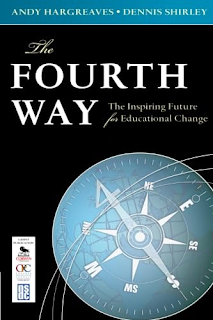flickr CC image via mzagor
There is a debate brewing over what authentic learning looks, sounds and feels like, I just know it. I'm hearing people make reference to the term, but I'm not sure if people know what it means. I'm not even sure if I know what it means. I have my point of view on the concept, but I haven't actually heard a definitive explanation. Sad it would be if the potential value of what authentic learning has to offer kids were to be diminished as a result of teachers bantering the term about without actually creating authentic learning in their classrooms. (Reminds me of what's happened with PLC's. Alarmingly, many teachers claim to be involved within a professional learning community, but they have no idea what Richard DuFour intended that to actually mean... I know because I've asked them.)
So what is an authentic learning environment? Here's some examples of what I think an authentic learning environment might look, sound or feel like:
- Kids who go home at the end of the day and do homework that I didn't assign, but that is totally related to what we did in class that day
- Unit and lesson plans that adjust for the unforeseen possibilities that crop up in an organic learning environment (a.k.a. teachers who aren't slaves to their well-thought out plans for instruction; those that think on their feet)
- Evaluation and assessment practices that reflect student's progress against his/her personal goals and aspirations, and that are relative to where the student jumped off at the beginning of the learning journey
- Learning activities that provide multiple formats and opportunities to display learning
- Learning that stimulates all modalities; that draws the whole person into the process... there's more to learning than just what we see with our eyes and hear with our ears
- Learning in three dimensions (can you say paperless teaching?)
- Kids suggesting what we should do next in whatever class to extend the learning objective we just met
- Parents knowing what their kids are doing at school because the kids are so darned excited that they can't wait to tell them every day
- Teaching and learning that understands we are emotional beings; that we need to reach people on personal levels before we can reach them on cognitive levels (and that by doing so, we can go so much further in the cognitive domain)
- Teaching that exploits all degrees and variations of student strengths without apology with the understanding that there is no limit to what can be learned
- Teaching from a perspective that doesn't recognize or validate failure, only relative degrees of success
- Teaching that utilizes various forms of technology as critical tools toward creating authentic learning when the lived experience isn't possible (field trip to the moon)
- Teaching and learning that incorporates the fine arts and physical movement into all learning activities as opposed to the traditional practise of conducting classes for these as separate 'subjects'
- Teaching and learning that incorporates the issues, challenges, contexts and mysteries that the broader world provides
- Teaching and learning that perceives mistakes as critical and valuable elements within the process of searching for understanding
- Teaching and learning that accepts the connectivity we enjoy in our global environment not as a novelty, but a necessity
- Teaching and learning that exudes creativity and takes risks understanding that the two mixed together equal opportunity






